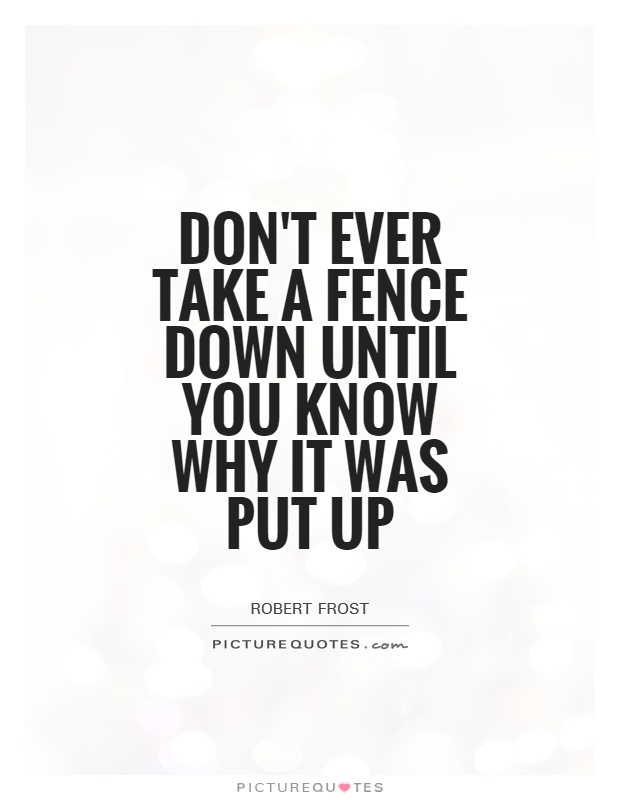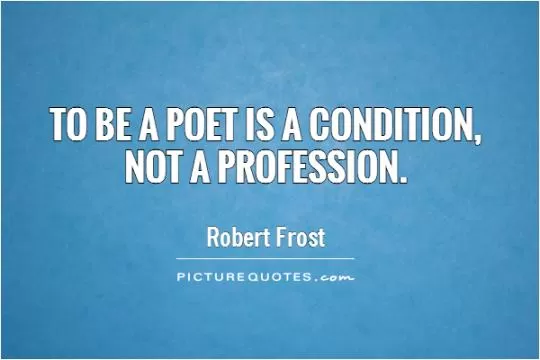Don't ever take a fence down until you know why it was put up

Don't ever take a fence down until you know why it was put up
Robert Frost, one of America's most beloved poets, often explored themes of nature, human relationships, and the complexities of life in his work. One of his most famous poems, "Mending Wall," delves into the idea of boundaries and the importance of understanding why they exist before dismantling them.In the poem, the speaker and his neighbor come together each spring to repair the stone wall that separates their properties. The neighbor firmly believes in the old adage, "Good fences make good neighbors," while the speaker questions the necessity of the wall in the first place. As they work side by side, the speaker muses on the purpose of the wall and wonders if it is truly needed to keep them apart.
The line, "Don't ever take a fence down until you know why it was put up," encapsulates the central theme of the poem. Frost is cautioning against blindly tearing down barriers without understanding their significance. The fence in the poem serves as a metaphor for the boundaries we create in our lives, whether physical, emotional, or psychological. Before we dismantle these barriers, we must first understand why they were erected in the first place.
Frost's words remind us to consider the consequences of our actions and to approach change with thoughtfulness and intention. Just as the speaker in "Mending Wall" questions the necessity of the wall, we too should reflect on the purpose of the boundaries we encounter in our own lives. Are they serving a valuable function, or are they simply dividing us from others unnecessarily?












 Friendship Quotes
Friendship Quotes Love Quotes
Love Quotes Life Quotes
Life Quotes Funny Quotes
Funny Quotes Motivational Quotes
Motivational Quotes Inspirational Quotes
Inspirational Quotes